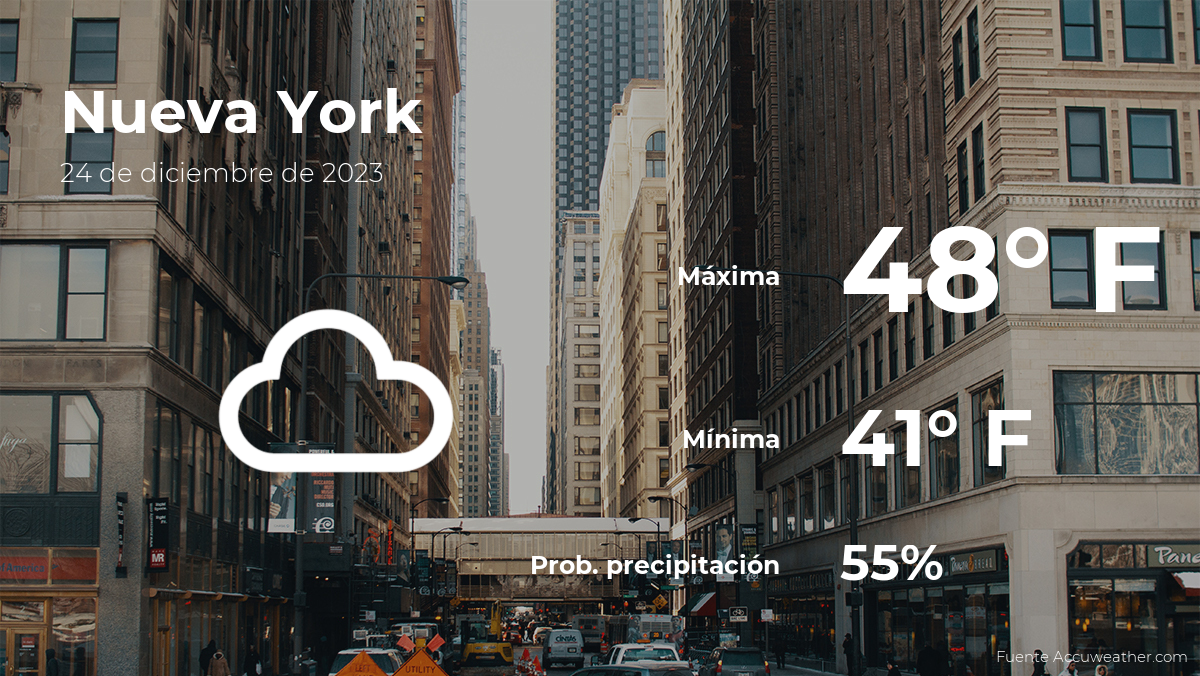
By The newspaper
How should you dress to go out this Sunday in New York? The weather prediction for today in the Big Apple shows a maximum temperature of 48 degrees Fahrenheit (9ºC) and a minimum of 41 degrees Fahrenheit (5ºC). On the other hand, the thermal sensation or “real temperature” expected for this day will be 46ºF (8ºC) maximum and 46ºF (8ºC) minimum.
The probability of precipitation is 55% during the day and 6% at night, while we will have 15% cloud cover during the day and 14% at night.
Wind gusts will reach a maximum of 5.59 mph during the day and 2.49 mph at night, so it is recommended to wear appropriate clothing. At this time of year, sunrise will be at 7:18 a.m., while sunset will occur at 4:33 p.m. In total there will be 9 hours of sun throughout the day.
The weather forecast for tomorrow in New York
The weather in New York tomorrow is expected to have more clouds than clear weather. Temperatures will range between 43 and 52 degrees Fahrenheit (6 and 11 degrees Celsius). Chances of rain will be 2% in the morning, 4% in the afternoon and 2% at night.
Don’t forget to check the latest weather news at www.eldiariony.com/clima
New York offers a mainly humid climate, with cold winters and warm summers. Rainfall is common throughout the year, with storms during summer and snowfall in winter. The proximity of the Atlantic Ocean helps smooth out extreme temperature changes. The coldest months are December and March, while the hottest are between July and August.
What is the climate in the United States?
A country as large as the United States has very different climates depending on the region and the season of the year. On the East Coast, the dominant climates are the humid subtropical climate in the southeast of the country and the humid continental climate further north, specifically, towards latitudes between 40° N and 70° N.
While the humid subtropical climate is characterized by hot summers with high humidity and cool winters with abundant precipitation in coastal areas, the continental climate presents precipitation throughout the year, with snowfall that later turns into snowfall in winter and strong storms in the summer months.
In the western United States there are at least three major predominant climates: semiarid, arid and Mediterranean. The cold semiarid climate encompasses the west central and north-south United States, with little rainfall and low temperatures.
The southwest has a cold or warm arid climate, with freezing winters and mild summers in the cold and very summers and mild winters in the warm. Both have little rainfall. The Mediterranean climate is located in the coastal area of the American West and has rainy, mild winters and dry, hot summers.
